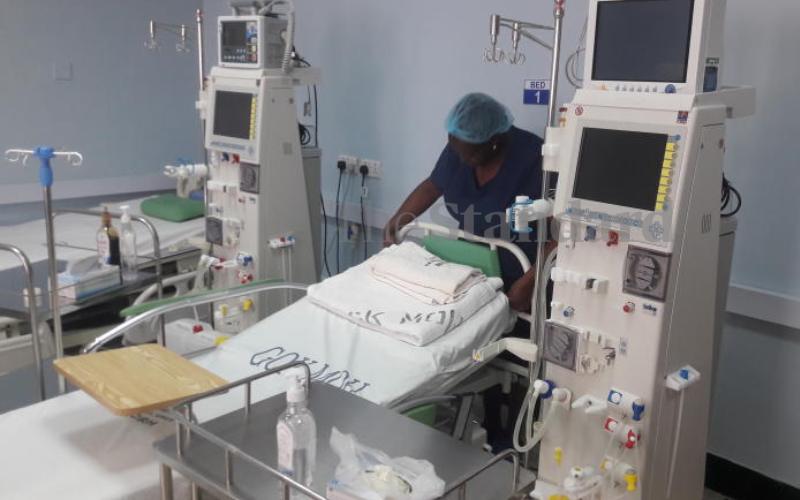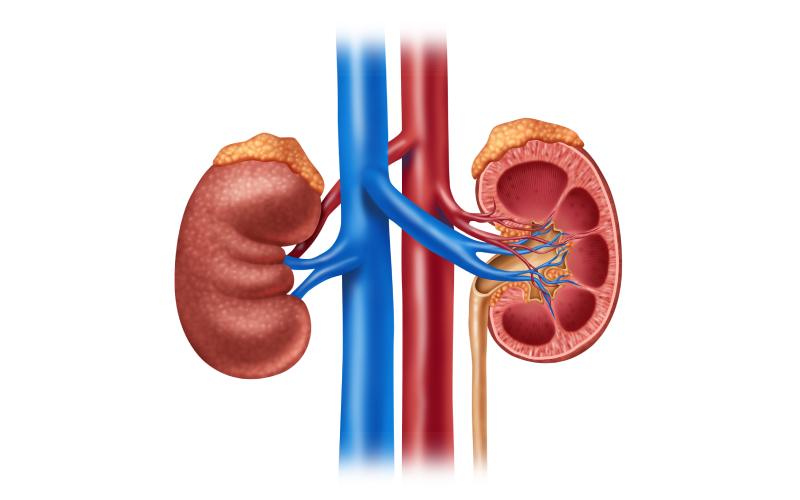
For Esther Wambui, Thursday was the most hectic day of the week as she travelled from Naivasha to Kenyatta National Hospital (KNH) in Nairobi for dialysis.
The weekly routine left her drained physically, emotionally and financially as she struggled with kidney disease.
Wambui’s problem started with fatigue, nausea and vomiting, forcing her to take several pregnancy tests that all turned negative.
“I was worried as I was already on family planning pills and could not understand how I was pregnant based on the symptoms I was getting,” she says.
The situation became serious when her legs started swelling and passing urine became a painful experience.
“I was advised to visit a specialist in Nakuru and my fears were confirmed when I was told that I was suffering from kidney failure and put on medication,” she says.
For three months, Wambui was on medication but her condition deteriorated, with her joints swelling and her getting fatigued after doing light chores.
It was at this point that she was advised to seek dialysis services in KNH where she got a place after three months of waiting.
Dialysis helps remove excess potassium from the body and during the process, a machine pumps blood out of your body through an artificial kidney (dialyser) that filters out waste.
The blood is then returned to your body.
Two years down the line, Wambui has been undergoing the process every week and this has affected her.
“The dialysis sessions have adversely affected my family financially and socially as I was going to KNH every week, which was very expensive,” says the mother of five.
However, Wambui’s woes and those of many other patients in need of dialysis have been eased with the opening of a renal unit at Naivasha sub-county Hospital.
According to the hospital’s superintendent, Dr Angeline Ithondeka, the Level IV facility has five dialysis machines.
“Apart from the five machines we also have five renal nurses who have been attending to patients seeking dialysis services,” Dr Ithondeka says.
She adds that patients suffering from kidney failure previously sought services from KNH in Nairobi and Rift Valley Provincial General Hospital in Nakuru.
“Previously each machine was doing one session per day but we have doubled this and are attending to 12 patients daily as those seeking these services are on the rise,” says the doctor.
According to her, there are 21 patients seeking to join the list of those being attended to weekly.
“Every week the patients undergo two dialysis sessions and this is very expensive and taxing to both the patients and the county,” she says.
A bigger renal unit
Ithondeka says plans were at an advanced stage to open a bigger renal unit in the new wing that is under construction.
She says the Sh300 million facility that was constructed by the Kenya Electricity Generating Company (KenGen) and the county government will come in handy by offering more dialysis machines.
“Under the new wing that has been constructed using the Facility Improvement Fund, we shall have a full renal unit with 15 beds, an ICU and HDU,” she says.

A nephrologist, John Mwania, says causes of kidney failure differ from one patient to another, with those aged over 60 years being the most affected by the condition.
The retired physician, who is now in private practice, says kidney failure occurs when kidneys become unable to filter waste products from the blood.
“This medical condition can be caused by damage to the kidney or if one has a condition that slows flow of blood to the kidney,” says Dr Mwania.
He says this affects the chemical balance in one’s body, leading to fatigue and fluid retention which in turn causes the swelling of the legs.
“These symptoms differ from one patient to another and some are adversely affected while others learn about kidney failure only after laboratory tests,” he says.
Dangerous heartbeats
Mwania says dialysis is one of the most effective ways of treating the condition, although some patients get cured through use of medication.
He says some of the treatments require medication to prevent the accumulation of high levels of potassium in one’s blood.
“Too much potassium in the blood can cause dangerous irregular heartbeats and muscle weakness and hence the need to use the right medication,” he says.
The doctor says people aged over 60 years are the most affected by kidney failure but the trends are changing, with younger people suffering from the disease.
“The number of young people suffering from kidney failure is low.
“Those with diabetes, hypertension and family history of kidney failure are at a high risk of developing this condition,” says Mwania.
Credit: Source link